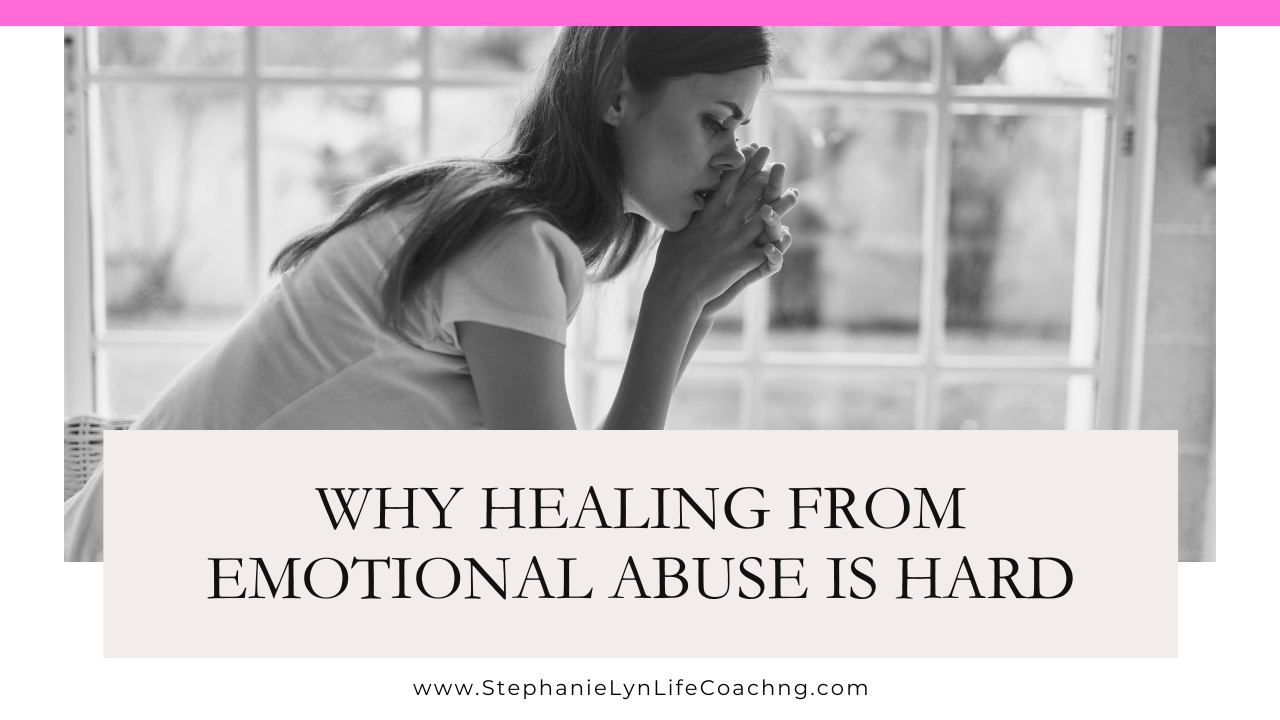Why Healing from Emotional Abuse is Hard
Aug 02, 2023
Emotional abuse, often insidious and hidden, leaves deep scars on a person's psyche. Unlike physical abuse, emotional abuse targets the victim's emotional and mental well-being, making it challenging to identify and even harder to heal from. In this exploration, we delve into the complexities of healing from emotional abuse, shedding light on the lasting impact it leaves on survivors' lives.
Psychological Trauma: Wounds that Run Deep
Emotional abuse inflicts psychological trauma, causing significant distress, anxiety, and even post-traumatic stress disorder (PTSD). Verbal assaults, gaslighting, manipulation, and constant criticism shatter a person's self-esteem and sense of self-worth. Survivors of emotional abuse may internalize the negative messages, leading to a distorted self-perception that persists even after the abusive relationship has ended.
Guilt and Self-Blame: The Weight of Emotional Baggage
Emotional abuse often involves blaming the victim for the abuser's actions, perpetuating feelings of guilt and self-blame. Survivors may struggle to recognize that they are not responsible for their abuser's behavior. The prolonged exposure to blame and manipulation can lead to a sense of learned helplessness, making it difficult to break free from the cycle of abuse and hindering the healing process.
Isolation and Social Withdrawal: A Broken Support System
Emotional abusers frequently isolate their victims from friends and family, leaving them emotionally dependent on the abuser. As a result, survivors may lose their support system and social connections, intensifying feelings of loneliness and vulnerability. Rebuilding trust and forming new bonds after emotional abuse can be challenging, as survivors may fear repeating the cycle of abuse in future relationships.
Emotional Flashbacks: Reliving the Pain
Healing from emotional abuse is further complicated by emotional flashbacks. These intense emotional reactions are triggered by events or memories that resemble past abusive experiences. Emotional flashbacks can leave survivors feeling overwhelmed and helpless, even if they are no longer in an abusive situation. Coping with these recurring feelings requires specialized support and coping mechanisms.
Complex Emotional Entanglement: Love vs. Abuse
Emotional abuse often occurs within romantic relationships, where the abuser may oscillate between moments of love and affection and episodes of abuse. Survivors may grapple with conflicting emotions, making it harder to disentangle from the abusive partner. The confusion surrounding love and abuse can lead to a cycle of breaking free and returning to the abuser, prolonging the healing process.
Lack of Visible Evidence: The Silent Suffering
Unlike physical abuse, emotional abuse often leaves no visible scars, making it challenging for others to recognize or validate the survivor's pain. This lack of tangible evidence can lead to feelings of invalidation and self-doubt, hindering the healing journey. Survivors may hesitate to seek help, fearing that their experiences will be dismissed or misunderstood.
Rebuilding Self-Esteem: A Fragile Foundation
Emotional abuse erodes a person's self-esteem, leaving behind deep emotional wounds that take time to heal. Rebuilding self-esteem requires self-compassion, therapy, and consistent efforts to challenge negative self-perceptions. The healing process may be fraught with setbacks, but with patience and support, survivors can gradually regain their self-confidence and sense of self-worth.
Fear of Vulnerability: Guarding the Heart
Survivors of emotional abuse may develop a fear of vulnerability, as emotional openness was often exploited by their abuser. Consequently, they may struggle to trust and open up to others, even in healthy relationships. Overcoming this fear and learning to trust again are essential steps in the healing process, but they demand time and emotional labor.
Repetition of Patterns: Breaking the Cycle
Emotional abuse can foster unhealthy coping mechanisms that survivors may unknowingly carry into other aspects of their lives. Unresolved trauma can manifest in future relationships and behaviors, perpetuating a cycle of abuse. Breaking free from these patterns requires conscious self-awareness and professional guidance to interrupt the cycle and forge healthier connections.
Healing from emotional abuse is a challenging and intricate process that demands immense courage, patience, and support. Survivors face the formidable task of unraveling deep-seated emotional wounds, rebuilding their self-esteem, and relearning healthy relationship dynamics. Professional therapy, a strong support network, and self-compassion are invaluable tools on the journey toward healing and reclaiming a life free from the shackles of emotional abuse. As society gains a better understanding of the complexities of emotional abuse, we can foster environments that empower survivors to embark on a path of resilience and transformation.

